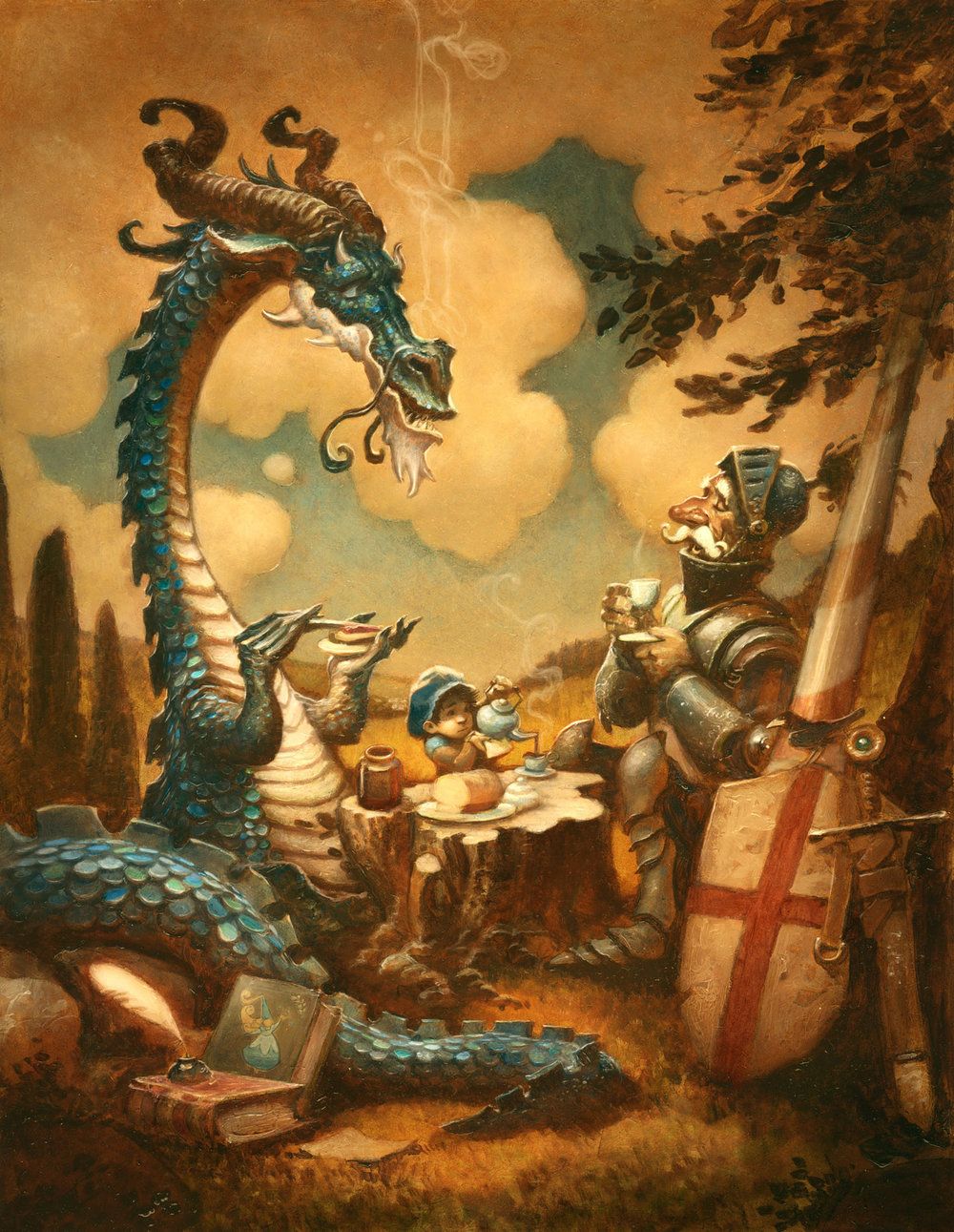Parley & Negotiation
When introducing known Non-player characters into an ongoing campaign, the Dungeon Master should have a clear, comprehensive understanding on why these characters are there, and how they would logically act when encountering the game party. Therefore, a random die is NOT recommended in such cases.
For example, if the party has gained the attention of the local thieves' guild, and that guild knows what the party is doing and why, then an encounter between the thieves' guild and the party should play out according to the most logical motivations of the NPCs in this case. Either the guild is angry and prepared to threaten or kill, or it is interested in negotiation, or it seeks information of some kind. The best answer should be obvious to the DM and the parley played out accordingly, without any need to roll a reaction die.
However, if the party were to select an NPC or group of NPCs at random, or if an encounter die were to conjure up such a group randomly, then it follows that the reaction to the party would also be random, as no previous circumstances exist stipulating an expected reaction of the kind above. In this case, the DM benefits from having an "initial response" that's rolled randomly. The need for the roll is likely to occur due to two common reasons:
- 1. The players make a request of the Other that may or may not be fulfilled.
- 2. The mere presence or appearance of the party creates a backlash on the Other's part.
Requests
A "parley" between strangers is often a simple request between parties to let the other pass unmolested, called "free passage." Similarly, combatants meeting upon a field of battle may request a truce or a temporary cessation of hostilities. In some cases, a random roll may be in order; however, in most cases, enemies with an intelligence of 11 will nearly always accept an offer like this, so long as neither side surrenders anything of value. An agreement to fight over the same ground a day later, or to agree that neither party holds that ground, the gain or loss is viewed as equivalent and therefore, reasonable.
However, if a request is made where the players gain while the NPCs concede material value, status, honour or time spent, then a roll must be made to determine if the players' request is fulfilled. In such a case, the player or players clearly state what's wanted, whereupon the players choose which of them will roll 3d6. The number needed to succeed, and the consequence of failure, depends upon the request being made. Note that some requests are so excessive that they can never be granted, and that even asking for them is tantamount to a declaration of hostilities.
The matter of assigning a "rank" to the type of request being asked is daunting, but an attempt has been made. Examples not included, that might occur in game play, can be judged as needed; the DM can expand the table afterwards, ever improving the list.
F-class Requests
- Beg 1-4 c.p. from a steadily employed person.
- Ask for directions, simple instructions or mild physical help for a few minutes.
- Access to an unguarded area without access to materials, important persons or wealth, that may nevertheless be denied to the public, in exchange for a 2-5 g.p. bribe.
- Request another to take an action that might, at worst, bring a verbal reprimand from his or her overseer.
E-class Requests
- Ask for an unskilled labour job.
- Offer pertinent information to a person in exchange for a 2-5 s.p. bribe.
